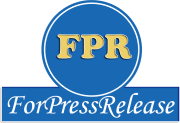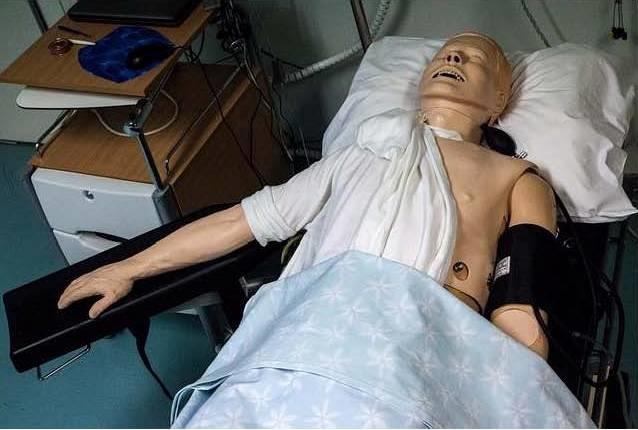
403
Sorry!!
Error! We're sorry, but the page you were looking for doesn't exist.
Why BLS Certification Is Essential For Healthcare Professionals
(MENAFN- ForPressRelease)
BLS training has emerged as an essential requirement for healthcare professionals.
Short for Basic Life Support, BLS training aims to impart healthcare providers with the skills required to recognize and respond promptly to several life-threatening medical emergencies with a view to saving lives. The training programs typically target breathing and cardiac emergencies.
BLS courses are designed for various healthcare professionals. Common beneficiaries include physicians, nurses, and emergency medical services (EMS) workers like fire fighters.
This article will highlight the top reasons why every healthcare provider requires BLS certification.
1. You Learn Life-Saving Skills
Basic life support training is all about saving lives.
Most BLS courses are designed to impart learners with proper cardiopulmonary resuscitation (CPR) skills.
Armed with CPR skills, you can promptly respond to medical emergencies related to breathing difficulties and potential cardiac arrests. Your timely response may be all it takes to save a life during critical moments when the nearest medical facility could be miles away.
Note that cardiac arrest claims millions of lives annually. And while most of the incidents are triggered by underlying conditions, the skills that come with BLS license can prove instrumental in lowering the statistics.
2. You Learn More Than CPR
There are several life-saving skills to learn from basic life support training besides cardiopulmonary resuscitation.
Many BLS courses also include programs on automated external defibrillators (AEDs). AEDs are lightweight, portable devices designed to deliver electric shocks to the heart through the chest when they detect potentially life-threatening cardiac arrhythmias.
AEDs are generally more useful in cardiac arrest scenarios than basic CPR.
But while most medical professionals can effectively perform chest compressions, only a few can handle AEDs. Undergoing BLS training imparts you with the skills required to safely deploy AEDs and possibly restore a patient's heart to full functionality.
Below are other useful skills taught in a BLS program;
Using a barrier device to achieve effective ventilations
Safely clearing obstructed airways of foreign bodies
Deploying multiple life-saving devices and techniques simultaneously
3. Promotes a Sense of Safety at the Workplace
Healthcare providers face myriads of challenges.
Whether it's low staff morale caused by delayed salaries or ineffective treatment plans due to inadequate diagnostic equipment, these challenges can reflect adversely on overall workplace productivity.
Possessing BLS skills can promote a sense of safety in ill-equipped or understaffed hospitals.
BLS certification ensures everyone is skilled enough to handle basic medical emergencies when they occur. A nurse doesn't have to wait for hours for a doctor to emerge from a theater to save a choking child, by which time the patient would probably be dead.
4. Fosters Self-Confidence
Medical emergencies aren't limited to healthcare facilities. They may also occur at home, on the roads, in the shopping malls, etc.
In all scenarios, having the requisite basic life support training can make a significant difference between life and death.
Healthcare practitioners who have received BLS training can confidently attend to basic medical emergencies regardless of where the incidents occur.
It doesn't matter if it's an infant choking from a foreign body at home or a senior struggling to catch their breath on the street. You can trust your BLS skills to kick in and save the day.
Those who live or work around BLS professionals can also go about their routines confident that someone will always rise to the occasion whenever medical emergencies occur.
5. Improves Employability
Medical careers are ever in demand. That explains why medics are some of the highest-paid professionals worldwide. However, acing the competitive job market requires more than basic healthcare training.
To improve your employability, you'll need to go an extra mile and acquire additional relevant skillsets. A good place to start would be to enroll in a BLS course.
Note that most medical facilities today require all healthcare providers to have basic life support certification. That's regardless of your specialty - general practice, nursing, dentistry, pharmacy, etc.
BLS certification can provide an edge over other candidates when interviewing for a job in the healthcare industry. If you were lucky to have been employed without possessing basic life support skills, now is the time to enroll for a BLS program.
6. Reinforces the Spirit of Collaboration
Certain life-saving interventions may be performed by one individual. But in many scenarios, medical emergencies require more than a single pair of hands.
BLS training promotes the significance of teamwork during emergency response. It encourages medical professionals to collaborate effectively through clear communication and coordinated efforts while responding to life-threatening scenarios.
The significance of teamwork among healthcare providers isn't merely emphasized by words. BLS training involves simulated medical emergency scenarios designed to underscore the need for cooperation during real-life events.
For instance, trainees may be paired and asked to provide emergency treatment simultaneously to a patient having a cardiac arrest. One learner would probably perform a CPR as the other administers an AED in well-coordinated intervals.
With proper collaboration skills, healthcare practitioners can solve problems more effectively when actual medical emergencies present themselves.
Summary
Possessing BLS certification comes with several benefits for healthcare professionals.
However, the trick is to undertake basic life support training from a reputable and duly accredited organization. The American Red Cross and the American Heart Association (AHA) are noteworthy providers of globally acceptable BLS programs.
It's also worth noting that BLS certifications are renewable.
Short for Basic Life Support, BLS training aims to impart healthcare providers with the skills required to recognize and respond promptly to several life-threatening medical emergencies with a view to saving lives. The training programs typically target breathing and cardiac emergencies.
BLS courses are designed for various healthcare professionals. Common beneficiaries include physicians, nurses, and emergency medical services (EMS) workers like fire fighters.
This article will highlight the top reasons why every healthcare provider requires BLS certification.
1. You Learn Life-Saving Skills
Basic life support training is all about saving lives.
Most BLS courses are designed to impart learners with proper cardiopulmonary resuscitation (CPR) skills.
Armed with CPR skills, you can promptly respond to medical emergencies related to breathing difficulties and potential cardiac arrests. Your timely response may be all it takes to save a life during critical moments when the nearest medical facility could be miles away.
Note that cardiac arrest claims millions of lives annually. And while most of the incidents are triggered by underlying conditions, the skills that come with BLS license can prove instrumental in lowering the statistics.
2. You Learn More Than CPR
There are several life-saving skills to learn from basic life support training besides cardiopulmonary resuscitation.
Many BLS courses also include programs on automated external defibrillators (AEDs). AEDs are lightweight, portable devices designed to deliver electric shocks to the heart through the chest when they detect potentially life-threatening cardiac arrhythmias.
AEDs are generally more useful in cardiac arrest scenarios than basic CPR.
But while most medical professionals can effectively perform chest compressions, only a few can handle AEDs. Undergoing BLS training imparts you with the skills required to safely deploy AEDs and possibly restore a patient's heart to full functionality.
Below are other useful skills taught in a BLS program;
Using a barrier device to achieve effective ventilations
Safely clearing obstructed airways of foreign bodies
Deploying multiple life-saving devices and techniques simultaneously
3. Promotes a Sense of Safety at the Workplace
Healthcare providers face myriads of challenges.
Whether it's low staff morale caused by delayed salaries or ineffective treatment plans due to inadequate diagnostic equipment, these challenges can reflect adversely on overall workplace productivity.
Possessing BLS skills can promote a sense of safety in ill-equipped or understaffed hospitals.
BLS certification ensures everyone is skilled enough to handle basic medical emergencies when they occur. A nurse doesn't have to wait for hours for a doctor to emerge from a theater to save a choking child, by which time the patient would probably be dead.
4. Fosters Self-Confidence
Medical emergencies aren't limited to healthcare facilities. They may also occur at home, on the roads, in the shopping malls, etc.
In all scenarios, having the requisite basic life support training can make a significant difference between life and death.
Healthcare practitioners who have received BLS training can confidently attend to basic medical emergencies regardless of where the incidents occur.
It doesn't matter if it's an infant choking from a foreign body at home or a senior struggling to catch their breath on the street. You can trust your BLS skills to kick in and save the day.
Those who live or work around BLS professionals can also go about their routines confident that someone will always rise to the occasion whenever medical emergencies occur.
5. Improves Employability
Medical careers are ever in demand. That explains why medics are some of the highest-paid professionals worldwide. However, acing the competitive job market requires more than basic healthcare training.
To improve your employability, you'll need to go an extra mile and acquire additional relevant skillsets. A good place to start would be to enroll in a BLS course.
Note that most medical facilities today require all healthcare providers to have basic life support certification. That's regardless of your specialty - general practice, nursing, dentistry, pharmacy, etc.
BLS certification can provide an edge over other candidates when interviewing for a job in the healthcare industry. If you were lucky to have been employed without possessing basic life support skills, now is the time to enroll for a BLS program.
6. Reinforces the Spirit of Collaboration
Certain life-saving interventions may be performed by one individual. But in many scenarios, medical emergencies require more than a single pair of hands.
BLS training promotes the significance of teamwork during emergency response. It encourages medical professionals to collaborate effectively through clear communication and coordinated efforts while responding to life-threatening scenarios.
The significance of teamwork among healthcare providers isn't merely emphasized by words. BLS training involves simulated medical emergency scenarios designed to underscore the need for cooperation during real-life events.
For instance, trainees may be paired and asked to provide emergency treatment simultaneously to a patient having a cardiac arrest. One learner would probably perform a CPR as the other administers an AED in well-coordinated intervals.
With proper collaboration skills, healthcare practitioners can solve problems more effectively when actual medical emergencies present themselves.
Summary
Possessing BLS certification comes with several benefits for healthcare professionals.
However, the trick is to undertake basic life support training from a reputable and duly accredited organization. The American Red Cross and the American Heart Association (AHA) are noteworthy providers of globally acceptable BLS programs.
It's also worth noting that BLS certifications are renewable.

Legal Disclaimer:
MENAFN provides the
information “as is” without warranty of any kind. We do not accept
any responsibility or liability for the accuracy, content, images,
videos, licenses, completeness, legality, or reliability of the information
contained in this article. If you have any complaints or copyright
issues related to this article, kindly contact the provider above.


















Comments
No comment